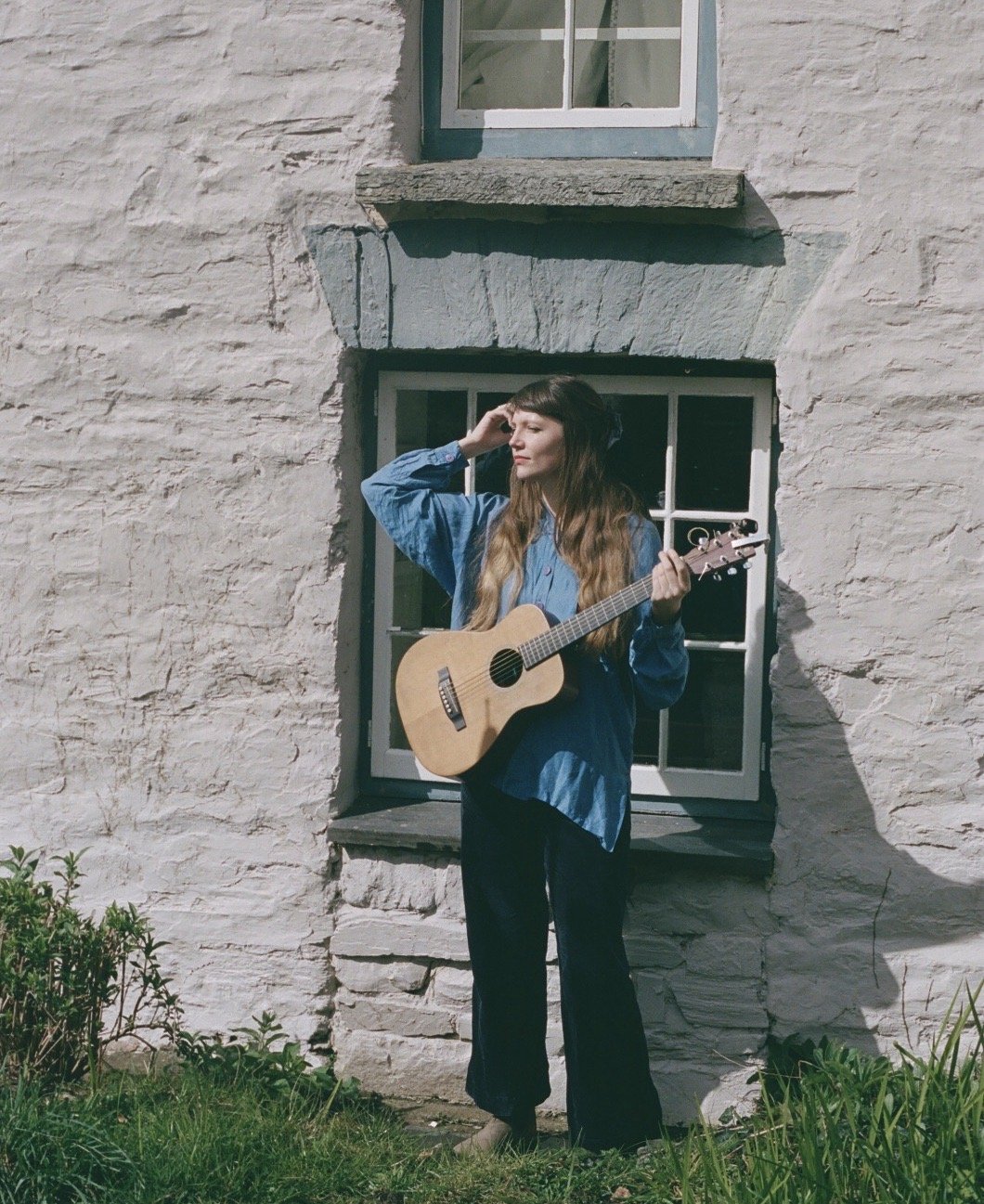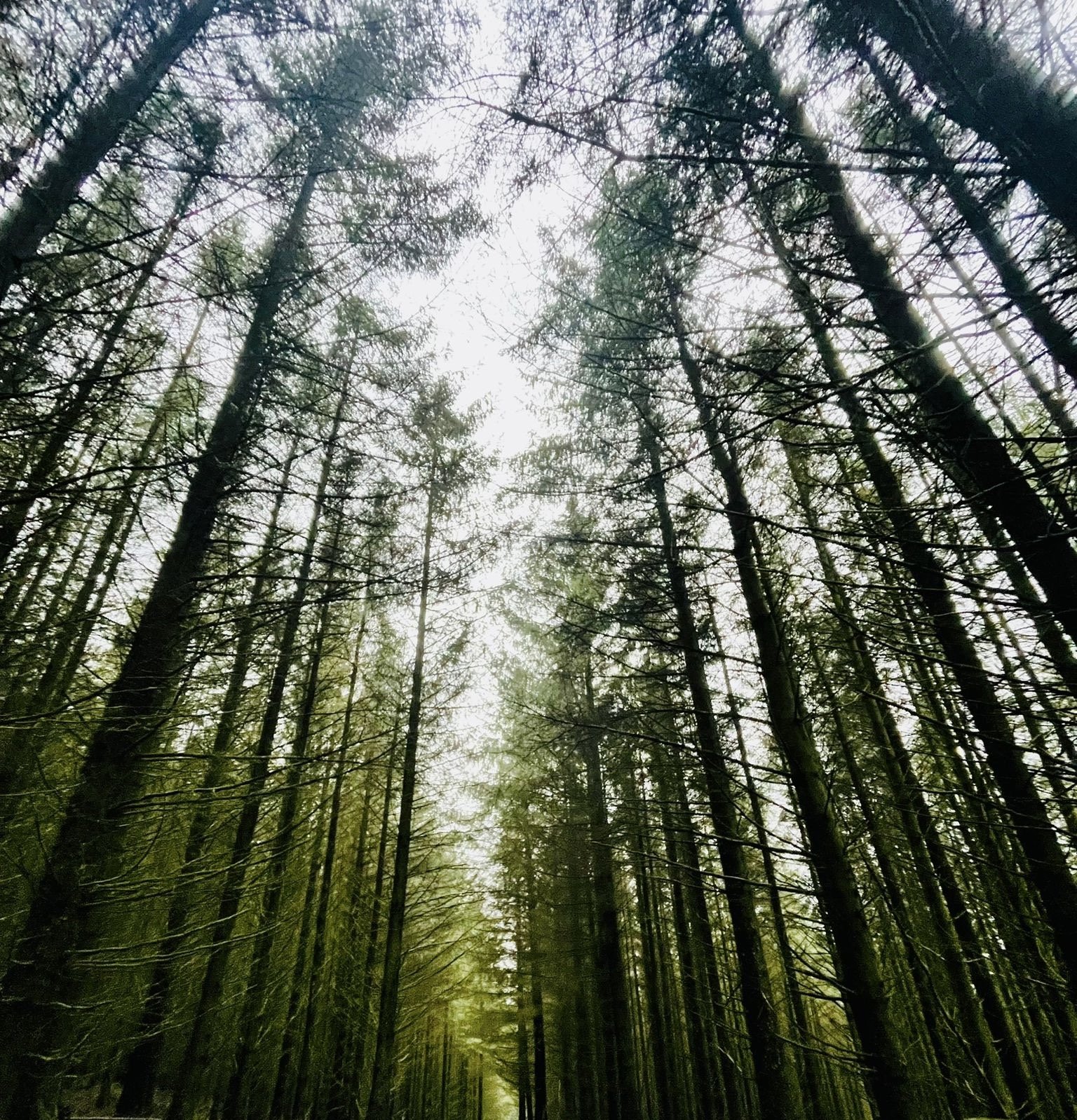A Writing Retreat
The Hurst, Arvon Foundation
At the end of February I won a place on a week-long writing retreat at The Arvon Foundation in Shropshire. To enter the competition, I had been asked to send a 500-word essay about my writing practice, and why I needed creative and financial support at this time. After a particularly wet, poor, muddy, and galling winter, the good news of my selection could not have arrived at a better (or lower) time.
Once I realised I was actually going, nerves and imposter syndrome kicked in. Over the years I have sat copious meditation retreats, stayed in Intentional Communities all over America, WWOOFed, and travelled back-and-forth to my favourite French artists’ retreat, all of which have familiarised me with the addictive format of meeting a bunch of strangers and bonding intensely within 48 hours. But not since I was in Mrs Beatie’s English class aged fifteen, wearing a scratchy bottle-green uniform, have I been taught writing, or been asked to read my words aloud. It’s funny how the things we truly crave are laced with the greatest fear. My intuition, though, is very loud - and she’s telling me to pack my bag, because this has landed in my lap for a reason.
I arrive at The Hurst - one of the Arvon Foundation’s clutch of English stately homes - in sleety drizzle, my pink jeans already splattered in February’s mud. It is 4pm. Inside, the building is warm and contemporary, and the energy feels uplifted and bright. I was expecting the usual run-down dustiness of our Tory government’s underfunded arts centres, but this feels abundant, opulent even. I’ve brought my own vegan butter and oat milk, but quickly realise these things have been taken care of. It’s like being welcomed into a warm clutch of thoughtfulness. Someone has even baked a vegan cake!
I take my suitcase up to my bedroom on the third floor and pull an Oracle card. I am not yet ready to drink tea with the others. ‘Say Yes to Life,’ it tells me. ‘When we most want to separate, the healing is often found in connection, not separation.’ I mooch around my new space. I peer out of my window in the rafters, at a scene of lightly falling snow over twilight-soaked grounds. Something is washing through me, and I realise it’s a strong sense of being in a completely kismet environment - being exactly where I am supposed to be.
Back downstairs, glass of wine in hand, I introduce myself to a string of intriguing people whose names and faces appear and disappear before me. One woman is writing feminist sex scenes, another is a sculptor wanting to explore words, someone else has a penchant for sci-fi and two children younger than mine. I love the variety of ages, and the specificity of our interests. I spend so much time questioning the things that make me unique, but it’s everything I am attracted to in others.
After tea, we are called into the lounge. Conor and Helena, our teachers for the week, are nestled on one of the sofas, bathed in winter evening lamp-glow. Conor sets a writing exercise immediately. ‘This one’s called ‘An Autobiography In Objects.’’ He gives us ten minutes to choose five chronological objects from our past to tell our life-story. Then we each in turn are asked to read ours out. Easing us in gently, I think. It’s not so scary having to read out a list, even if I do blush a little.
Jesse’s Autobiography in Five Objects:
Damp Welsh flagstones, clammy and cold underfoot.
A laurel tree den, built down in the quarry by the stream.
A rectangular, stitched Tibetan meditation cushion with a matching red mat.
A half-sized guitar bought in Nashville Tennessee, after my friend and I backed our car over my old one.
A Tommee Tippee baby bottle, full of a warm herbal tea and oat milk mixture.
Yancey, my little guitar. Photo: Harperpictures.com
At lunch the following day we eat together on long tables, chatting over Albanian soup, heaped bowls of salad, and slices of rustic ham. Amy tells me about the historic worlds she conjures up with her pen, alongside working as a GP for the NHS. We’ve been sharing our stories all morning and it’s loosening all kinds of thought spirals, just in time for my first ever writer’s tutorial after lunch.
‘The thing a writer needs is drive,’ Helena says, as we face each other in the Snug. ‘What will get you to your desk everyday and feel exciting - not like a chore?’ One-on-one, we pull apart the whirl of ideas around me, including the one that I won’t even admit: I want to write a book. But here my secret world of words is taken seriously. The shame of having ambitions is dispelled. How magic it is to have accountability and support! Deadlines and dreaming kinfolk! There is such power in stating our desires out loud to others.
Before long, somewhere amongst the classes on authenticity, tone, and accuracy of character, something happens that I didn’t dare to dream would. I find my ‘idea’. The words begin to flow. Conor sends me off with a two-hour assignment to write a ‘shitty first draft’ of a chapter and I find I can’t stop, scribbling at my desk late into the night. Hunched under a lamp with red wine and biscuits. Everywhere I am, new words and scenes unravel and release. A project emerges as I put my pen to paper, following any breadcrumbs the Muse hands me. It feels almost like fiction, although it definitely isn’t. ‘Auto-fiction,’ Helena called it. The hinterland of memoir and imagination.
One morning I awaken in a cascade of self-doubt and comparison. It seems everyone else has the ability to perpetually believe in themselves - but I like to knock myself down with the hammer of insecurity on the regular. I walk around in a dismal fog. I don’t feel envy for others’ talents or words or brains. I feel envy for those who complete things. Those disciplined enough to stay the course. This has always been my pattern: to dive in deep with inspiration and enthusiasm, only to second guess myself, beat myself up for daring to be vulnerable, and change course, a string of unfinished work left in my wake.
When Conor asks how we’re all doing I can’t help but express my morning (/life) of self doubt. He seems relieved to dive in. ‘Do you really think you’re the only writer to have experienced self doubt?’ he asks. Slowly the rest of the room shares parallel experiences. We dig into the droves of inflicted famous writers, too. By the end of the session I am buoyed again. And a new awareness is with me - so much of being a writer (or a creative) is about believing in an idea and then sticking with it, even when it seems preposterous and self-indulgent. So much is simply hanging on to the bull horns as it tries repeatedly to buck you off.
It’s actually just about daring to take your craziness seriously.
The Hurst
Another morning, after frying an egg, I put on my coat and walk outside into the endless rain. I’ve been pointed in the direction of the redwood trees, which sit somewhere in the Hurst’s extensive grounds, and I am hungry to find them. Any time I am near redwoods, feeling their soft bark, I am transported back to glorious California. To eating wood sorrel with a crystal-clutching girl whose name I’ll never remember. To balancing along logs thick with fungi and moss whilst epic shafts of sunlight poured down around me.
I am in amongst the redwood grove when I finally spot them. I don’t know how I got there without noticing their vast trunks, but I did, and now I reach out to touch the exotic bark and my nervous system relaxes. I can feel the tree’s personality through my hand. ‘I’ll visit you again tomorrow,’ I say after we’ve hung out a while. We hug and I carry on the path up the hill. The loop takes me round the crest, past two well-kept Shropshire farmsteads, before dipping back into The Hurst’s woodland and past a milky pond where an abandoned boat waits. The pine trees around me feel like home. The drizzle, the dampness, the luscious forest floor - though I dream of the Golden State, this is a Welsh girl’s truly comforting territory.
That afternoon I have the most inspiring tutorial with Conor. Overnight he’s read my ‘shitty first draft’ and annotated it, and he is full of encouragement and energy and ideas. He is taking me seriously, and once again it has a profound effect on me, most likely as I find it so hard to do this for myself.
On the bittersweet last evening we all gather in the lounge and take turns to read five minutes of our work aloud, in the manner of a writer’s salon. Our names have been posted on an official list, dictating the order of events. There’re wine top-ups, dark chocolate, herbal teas, and a flurry of excited nerves.
We hear brilliant stories about a Polish Millennium party and a Game of Throne’s style medieval banquet. A hellish trip to a London social networking event, and a young girl visiting her father in his asylum.
Then it’s my turn to sit in the yellow armchair, to read some scenes from the world I have spent the week nosediving into. I can’t believe I am able to do this quite happily, but I relish every minute of it. It feels big to trust a group enough to share, but all nine of us read, before the night dissolves into tarot readings, laughter, and shared appreciation for one another’s voices.
The next morning I prop myself up in bed, drinking tea. Nothing is packed, I am not washed, it’s all messy, and I don’t want to leave. It has been the most incredible week. I have befriended my words again, and younger versions of myself. I have befriended fellow new writers. Something is bubbling up. I feel hopeful and reconnected, desperate to see this one through.
‘Promise me you’ll keep going,’ Conor says, as I struggle out through the doors of The Hurst with my giant suitcase and half-sized guitar, into the cold. ‘You’ve got a great project there. I’m not bullshitting you.’ I let his Irish accent follow me home, daring myself to break the pattern of abandoning what is so important to me.
Photo: Izzie





